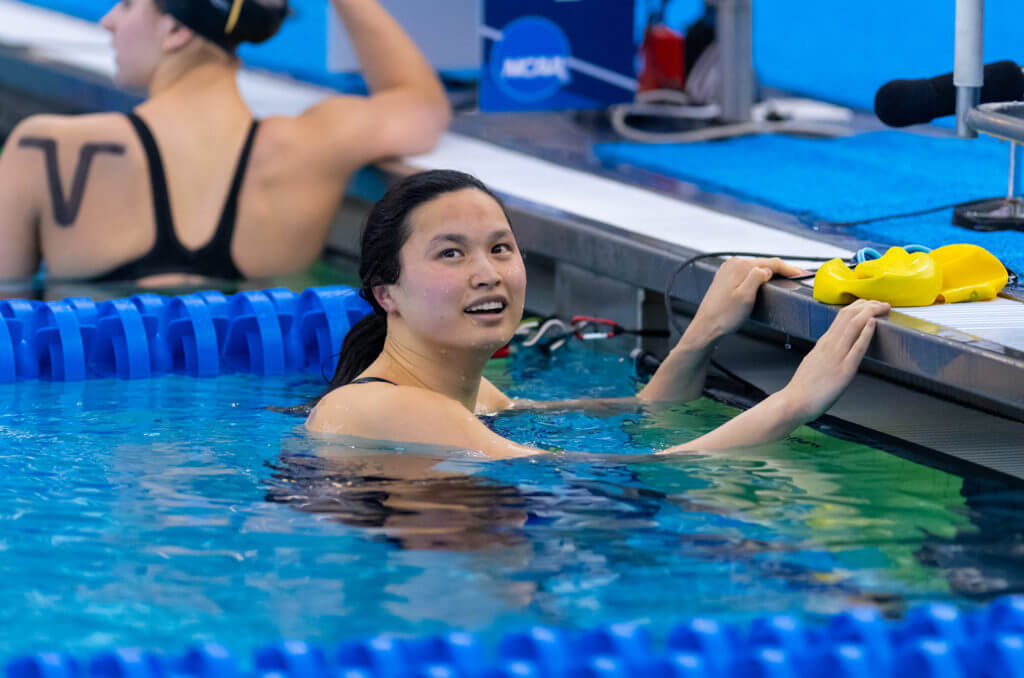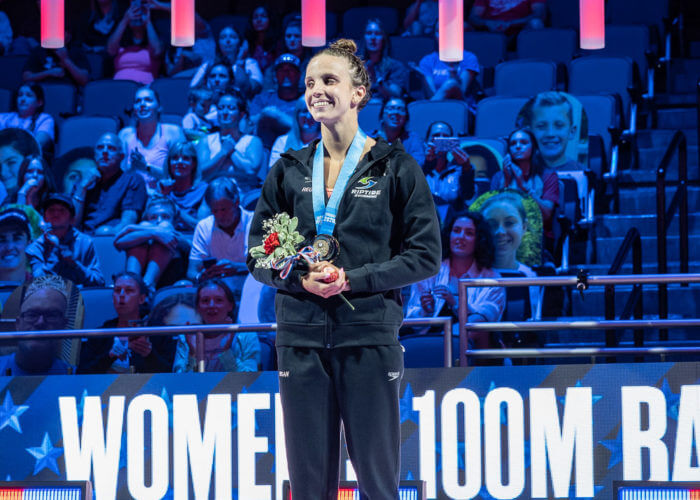NCAA Decision on Name, Image, Likeness Could Transform Swimming, Build NCAA Platform For Sport

College athletics will never be the same. The NCAA Board of Directors approved a groundbreaking change to the world of sports that will allow nearly a half-million athletes to start earning money based on their fame and celebrity without fear of endangering their eligibility.
It is a complete shakeup to the NCAA and was expected after states continued to pass their own laws to allow athletes to be compensated. It is a decision a long time coming with how much money athletes bring to their schools on a national stage, especially in sports like football and basketball. But with so many Olympians a part of NCAA sports like swimming and diving and water polo, things are going to change in the world of aquatics as well.
Swimmers like the University of Michigan’s Maggie MacNeil, who has already won a world championship, can capitalize on her image if she chooses to do so. She has a broader range as well because in addition to being part of one of the biggest universities in the world, she is an Olympian for Canada, and her stardom is blossoming in her own country that could lead to opportunities.
Virginia swimmers who won the NCAA championship and now head to the Olympics — Paige Madden, Kate Douglass and Alex Walsh — could see some opportunities as well. So could incoming freshman who have set world records or American records like Regan Smith and Torri Huske, who are both headed to Stanford.

Regan Smith. Photo Courtesy: Peter H. Bick
A couple of years ago, the NCAA swimming world had Simone Manuel, Katie Ledecky and Caeleb Dressel and it seems impossible to see them not capitalizing on this if it happened during their careers. Had this decision been in place years ago, we might have seen Michael Phelps swimming for Michigan instead of just in exhibition races and club meets.
It might bring more of the international stars of swimming to NCAA pools. There are plenty of international Olympians already in the NCAA like NC State’s Sophie Hansson, but some of the biggest international stars have turned pro and swam in their home countries rather than come to the U.S. This could open more of those opportunities.
“This is an important day for college athletes since they all are now able to take advantage of name, image and likeness (NIL) opportunities,” NCAA President Mark Emmert said.
According to The Associated Press, the decision basically suspends NCAA restrictions on payments to athletes for things such as sponsorship deals, online endorsements and personal appearances. it applies to all three divisions or some 460,000 athletes.
That means NCAA swimmers could potentially sign with sponsors, which could change the landscape of swimming.
Early reaction to the rule changes has been mostly positive. Paul Smith, father of Regan, told Swimming World that while Regan will not enter into any NIL agreements prior to the Tokyo Olympics, that is an avenue she will definitely pursue once she begins her college career at Stanford. Smith could be in line to benefit substantially from the change as she begins her college career immediately after her first Olympics, where she could win multiple medals.
“I’m grateful to see that so many hard-working, dedicated athletes may now benefit financially from their NILs,” Paul Smith said. ” For the next five weeks, Regan is focused solely on Tokyo and in doing everything she can to perform at her best for Team USA. We are, however, pleased with this decision and will consult with our eligibility contacts at Stanford for their input and guidance. ”
The NCAA will also allow athletes to enter into agreements with agents, though all athletes are expected to keep their school informed of any and all NIL arrangements. The NCAA said schools are responsible “for determining whether those activities are consistent with state law.”
The NCAA was forced to seek a temporary solution rather than have athletes in some states eligible for compensation while others were not. More than 10 states have laws set to go into effect Thursday that would have undercut or simply declared inert existing NCAA rules regarding NIL earnings.
According to the AP report, in a letter, Emmert stressed the high court still puts authority to govern college sports in the hands of the NCAA. However, he warned schools that “existing and new rules are subject to antitrust analysis and we should expect continued litigation, particularly in the area of ‘play for pay.’”



